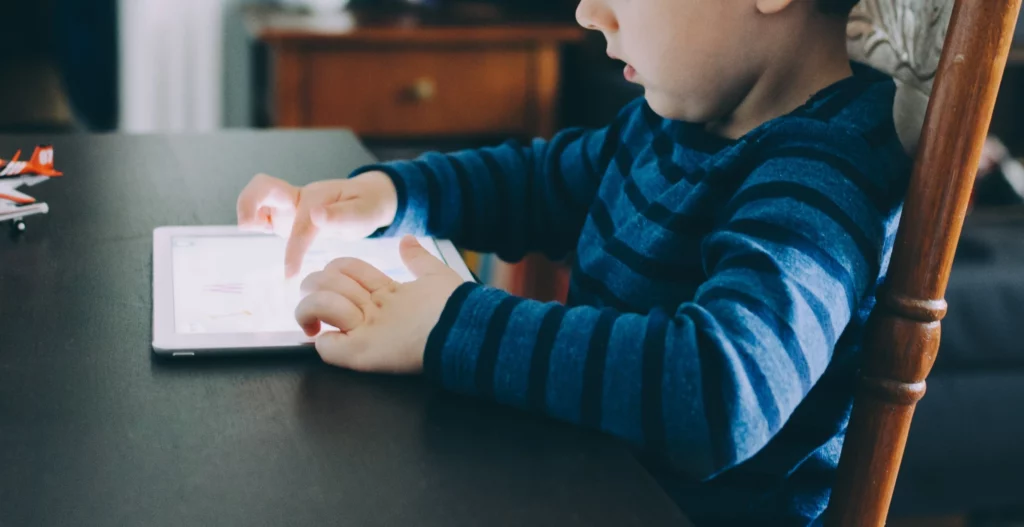| Key Takeaways | Description |
|---|---|
| Total Screen Time | Include all digital activities in the screen time count: TV, gaming, schoolwork, and social media. |
| Age-Appropriate Limits | Follow AAP guidelines: no screen time for children under 2, and up to 1 hour for ages 2-5. |
| Monitor and Limit | Actively monitor and set limits on screen time to ensure it doesn’t impede other developmental activities. |
| Quality vs. Quantity | Distinguish between educational and recreational screen time and prioritize accordingly. |
| Potential Negative Effects | Be aware of the potential adverse effects of excessive screen time, including impacts on health and cognition. |
| Family Screen-Time Plan | Collaborate on a family screen-time plan and regularly review its effectiveness. |
| Screen-Free Zones | Establish screen-free zones and times, particularly during meals and in bedrooms. |
| Alternative Activities | Encourage hobbies and activities that don’t involve screens to balance digital and real-life experiences. |
| Parental Control Tools | Use tools like Safe Lagoon’s screen time management to enforce screen time policies. |
While it’s often the topic of discussion among parents or between parents and pediatricians, studies show a huge gap between screen time limits recommended by pediatricians and the actual amount of time kids are spending on screens.
It’s a question parents get asked a lot: how much time do your children spend on screens each day?
While it’s often the topic of discussion among parents or between parents and pediatricians, studies show a huge gap between screen time limits recommended by pediatricians and the actual amount of time kids are spending on screens. For example, the American Academy of Pediatrics (AAP) recommends that teens prioritize sleep and exercise, but studies show they are spending more than 7 hours a day on screens, not including time spent on school work.
To set healthy limits for your kids, it’s important to understand what activities doctors classify as screen time, what limits they recommend, and why it’s important to monitor your children’s screen usage.
What counts as screen time?
Many parents only consider one or two activities when they think about screen time, but the fact is that all screen time counts. The National Institutes of Health classifies any sedentary activity in front of a screen as screen time. That includes
- Watching TV
- Playing video games
- Doing schoolwork on a computer
- Texting, social media, and other activities on smartphones
Consider all of the ways your children use screens during the day. If they spend just an hour on Instagram before school, two hours doing homework on their laptop after school, and another hour watching TV before they go to bed, they’ve had four hours of screen time. It adds up quickly!
Why are there different recommendations for different ages?
Pediatricians give different screen time recommendations for children in different developmental stages. The American Academy of Pediatrics advises no screen time for children under the age of two. Children in this age group aren’t able to take meaningful information from screens and need face-to-face interaction with a live person for optimal learning.
AAP and World Health Organization (WHO) guidelines allow children between the ages of two and five up to one hour of screen time each day. Studies indicates that kids in this age range can learn from screens, and doctors stress that any screen time should be highly educational. Personal interaction with caregivers, however, is much more beneficial than screen time.
For all children, the consensus is that parents should monitor screen time and set appropriate limits. Children need plenty of time to interact with friends, focus on schoolwork, read, exercise, and sleep, and media use should not interfere with these activities. Child development experts also stress that not all screen time is created equal. For example, three hours spent researching a school paper is very different from three hours of playing video games or scrolling through social media. Parents should keep both quality and quantity in mind when setting screen-time limits.
Will too much screen time cause problems for my children?
Studies show that excessive screen time can have a host of negative effects on children of all ages. Here are a few of them:
- Low scores on language and critical thinking tests
- Higher rates of obesity
- Increased risk for Type 2 diabetes
- Poor sleep
- Depression
- Less time spent outside
How can I cut down my children’s screen time?
Even though the consequences of excessive screen time can be quite scary for parents, the good news is that it’s not an all-or-nothing situation. A small amount of screen time can actually be good for your children. Here are a few tips to help you moderate your family’s screen time.
- Create a screen-time plan with your entire family—adults and children included. How much screen time will be allowed? What type of screen time? Stick to your plan!
- Keep mealtime screen free. Don’t allow your children to snack while on a screen.
- Remove TVs from your children’s rooms. Keep all smart devices in the kitchen overnight.
- Get involved in a hobby as a family. Board games, puzzles, crafts, baking, and sports are good alternatives to screen time.
- Once you’ve made a plan to cut down screen time, evaluate it after a few weeks. What’s working? Have you seen the results you wanted to see? Do you need to cut back more?
When it comes to screen time, no parent or doctor has all of the answers, but current research and medical advice can help you make the healthiest decision for your children. If you’re looking for additional guidance, be sure to check with your pediatrician.
Did you know that Safe Lagoon enables you to schedule screen time and help your children have healthy online experiences? Check out our blog to find out more!





